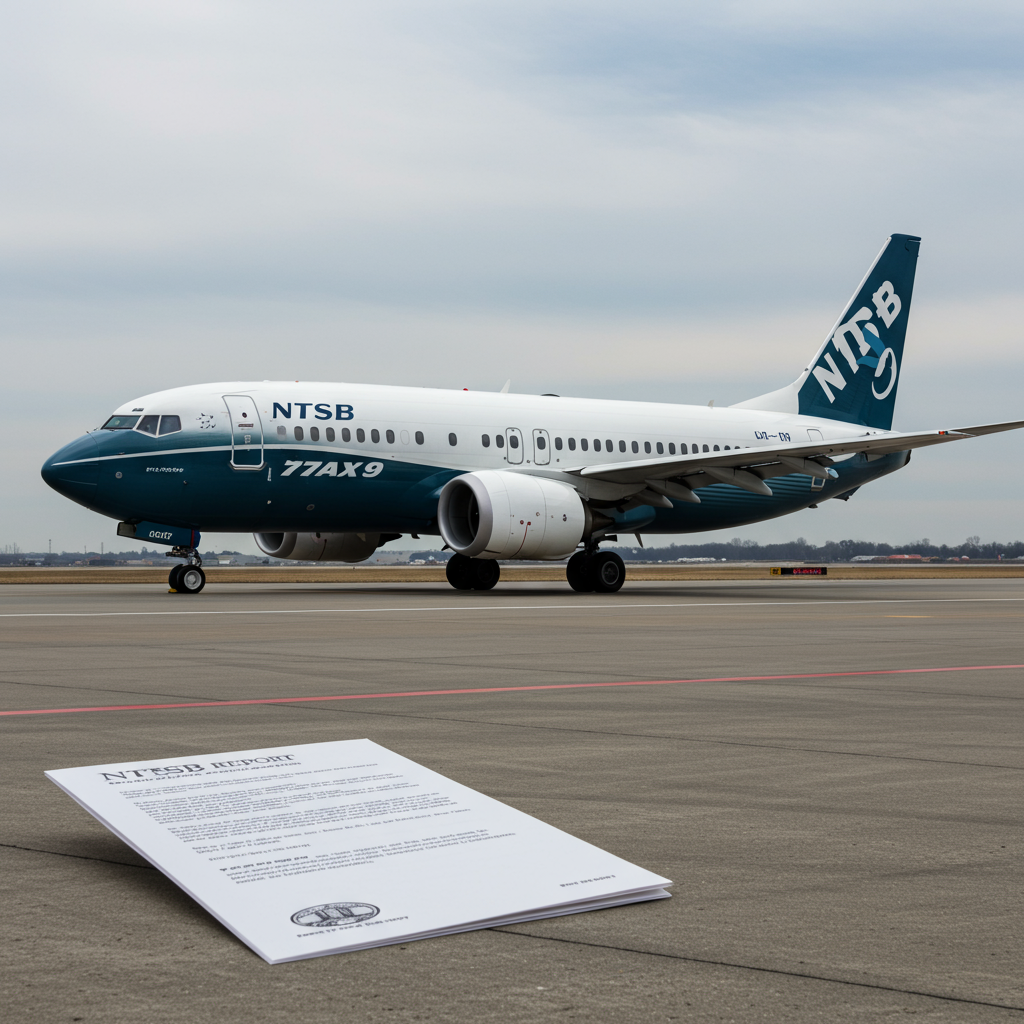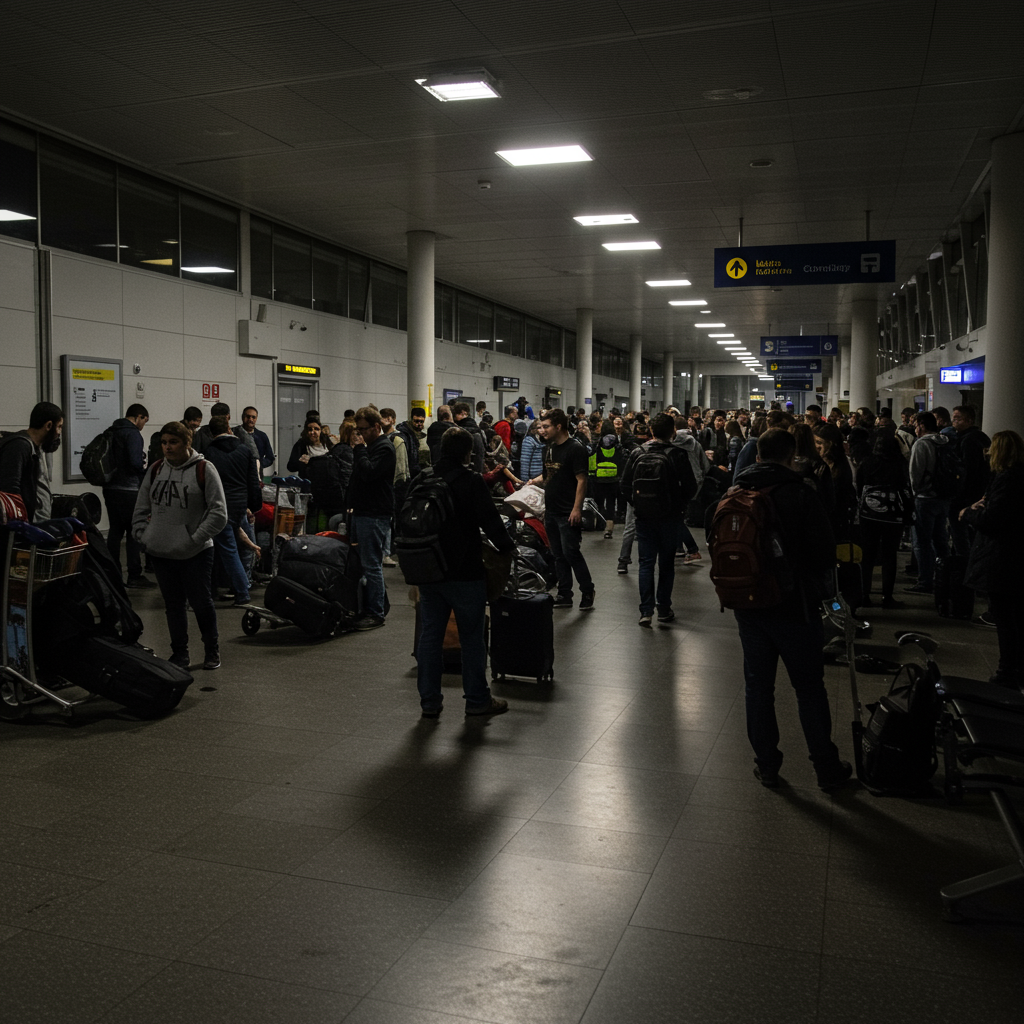Damning NTSB Report Blames Boeing for 737 MAX 9 Emergency
A midair emergency on an Alaska Airlines Boeing 737 MAX 9 flight in January 2024, where a cabin door panel detached shortly after takeoff, was a direct result of Boeing’s failure to provide adequate training, guidance, and oversight. That’s the conclusion of a scathing report from the United States National Transportation Safety Board (NTSB).
The NTSB’s investigation found that the incident was “entirely avoidable,” highlighting systemic issues within the aerospace giant and insufficient regulatory oversight by the Federal Aviation Administration (FAA).
Key NTSB Findings: Missing Bolts, Poor Culture
At the core of the near-catastrophe was the discovery that four key bolts designed to secure the door plug – a panel covering an unused emergency exit – were missing. NTSB Chair Jennifer Homendy stated that even one of these bolts properly installed could have prevented the panel’s separation.
Investigators determined that the door plug had been opened during production at Boeing’s Renton, Washington factory in September 2023 to repair damaged rivets. However, critical bolts were not reinstalled afterward. Photo documentation obtained by the NTSB showed evidence of missing bolts before the plug was closed. Disturbingly, Boeing reportedly created no paperwork documenting the removal or re-installation of the door plug during this process and could not identify the employees involved.
The NTSB pointed to significant safety deficiencies that should have been evident to both Boeing and the FAA for years. Homendy noted that unauthorized production issues had been flagged in numerous internal Boeing audits and reports for at least a decade without effective corrective action. This points to a deep-seated problem with Boeing’s safety culture.
Furthermore, the NTSB criticized Boeing’s on-the-job training as lacking, noting that within the factory team responsible for door work, only one person had prior experience removing a door plug panel.
Calling it “nothing short of a miracle that no one died or sustained serious physical injuries,” the NTSB also highlighted the inherent risk to passengers, particularly children traveling on laps, who could have been tragically impacted had they been seated closer to the separated panel area.
Regulatory and Legal Fallout
The January 2024 incident triggered swift and significant consequences for Boeing and its relationship with regulators:
MAX 9 Grounding: The FAA temporarily grounded all Boeing 737 MAX 9 aircraft for two weeks.
Production Cap: The FAA imposed a production cap of 38 Boeing 737s per month, which remains in place, signaling continued concerns about Boeing’s ability to maintain safety and quality standards at higher production rates.
Increased Oversight: The FAA acknowledged it had been “too hands off” in its previous oversight of Boeing and has since fundamentally changed its approach, boosting the number of inspectors at Boeing and supplier Spirit AeroSystems factories.
DOJ Investigation: The US Department of Justice opened a criminal investigation, declaring Boeing was not in compliance with a 2021 deferred prosecution agreement (DPA) stemming from earlier fatal MAX crashes. While Boeing recently reached a deal with the DOJ allowing it to avoid a formal guilty plea and outside monitoring (pending judicial approval), the MAX 9 incident reignited scrutiny over its adherence to safety commitments.
Boeing’s Response and Path Forward
In the wake of the crisis, Boeing CEO Dave Calhoun announced his intention to step down. Boeing stated it regretted the accident and is working on strengthening safety and quality across its operations. The company is reportedly developing a design enhancement to make the door plug more secure and plans to retrofit existing planes.
However, NTSB Chair Jennifer Homendy acknowledged the challenges ahead for incoming leadership, emphasizing that significant work is needed to address the systemic issues uncovered by the investigation. The FAA maintains that the production cap will not be lifted until it is fully confident in Boeing’s ability to consistently produce aircraft safely and reliably.
The NTSB’s final report underscores the critical need for Boeing to address its fundamental issues with production quality, oversight, training, documentation, and safety culture to prevent future avoidable incidents.




